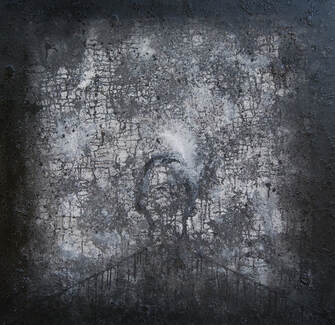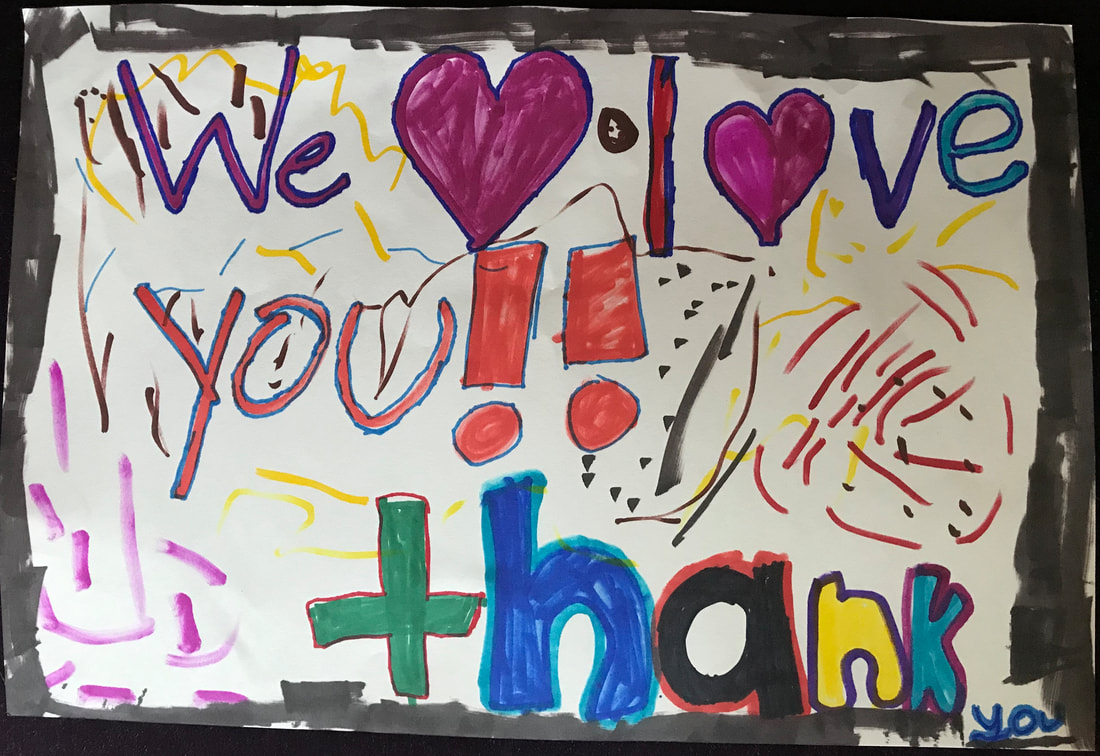|
I often lament in my own heart and mind that my more radical days seem to be behind me. What am I doing with my life and my upbringing? And then, there are other times when I think my radical waters may actually just run a little more deeply now - yes, more still with less activity agitating the surface, but perhaps with a wisdom and nonviolence I never knew in my more activist days.
The moment I regret that I don’t do work that is directly focused on social change anymore, I seem to find myself having a conversation about justice or equity or privilege or race or gender with my daughters (6 & 8). And, the more I have those conversations with them, with all the apparent complexity and history and economic underpinnings, the more frequently I arrive at a simple answer - a simple explanation - a simple premise: Love. This morning I watched from the sidelines as my kindergartener had her final class meeting on Zoom, replete with a photo slide show and original music by her exceptional teacher (who also taught my 8-year-old who loves her so much still that she sat in on the final class of kindergarten again with her little sister). The love of the kids for their teacher was obvious. They wouldn’t let her end the meeting. “Mrs. Scott, I lost a tooth.” “Mrs. Scott, my Mom was crying.” “Mrs. Scott, I got a haircut.” “Mrs. Scott, I got a puppy.” “Mrs. Scott…” Her students love Mrs. Scott. In turn, Mrs. Scott’s love for the kids is honestly somewhat profound. It’s not just that she is chronically kind and funny with the kids. It’s not just that she’s encouraging and seems genuinely interested or concerned when they tell her they have a hang nail. It’s not just the hours of work that went into creating her classroom and a wonderful virtual last class that felt warm and close even as it was remote. It’s not the tears she cried at her own video which she had certainly watched a thousand times while putting it together. Yes, of course, it’s all of that. But, it’s Mrs. Scott’s bold and radical and clearly articulated message in words and on the screen and in actions that said: I love you. She wrote it right there on the screen: I love you. She said it to all of those squirmy, smiling, doting faces in their little Zoom boxes: I love you. The kids know it. They know it down deep. And, this is why they read. This is why they work hard for her. This is why they want to be their best selves for their teacher - even when that often means all the repressed ugly comes out on the parents when they get home! I still appreciate that - most days. What more profound way could a child start her educational journey than associating it with being loved and with learning to love herself and to love others in her classroom and beyond - to love in a way that, in her kindergarten style, encourages her to make simple choices to build a more loving world with kindness and color and unicorns and chaos. Now, I’m not naive. I’ve been through school and I’ve worked around education. Sadly, this sort of overt and radical love does not last - at least not in this pure form. It lives here and there with those special teachers, but is not the first association most of us have with school. But, imagine if we built schools around the idea of love. Imagine if the love a kindergarten teacher gives her children was the same love given by an AP Biology teacher to a Senior in High School. Imagine if the love among peers encouraged in a kindergarten classroom was cultivated in Middle School classrooms. Imagine what school would look like! Imagine what our children would be like! Imagine what our society would be like! There was a time when I would have ignorantly suggested that this was some sort of naive vision for social change, that it was a nice thought for a Hallmark card, but hardly one bent toward radical social change. I was wrong. My belief today in love as the necessary foundation for change is more deep and more radical than any belief I have ever held. And, as I continue to read and learn, I understand more deeply how it is actually woven into the most profound and effective social change work in our nation’s history - and similar change work across the globe. This is not a new thought. It is not a unique thought. And yet, it is a thought we fail to keep, to protect, to live into, to remain committed to over a lifetime of education and learning. Myles Horton puts it clearly and succinctly and with an almost 90-year history of work at the Highlander Research and Education Center to prove it can be more than an idea. It can be put into practice. “I think if I had to put a finger on what I consider a good education, a good radical education, it wouldn’t be about methods or techniques. It would be loving people first.” We love you too, Mrs. Scott. Myles Horton, We Make the Road by Walking: Conversations on Education and Social Change
1 Comment
 Someone asked the other day: “how are you guys doing.” It’s a question we are all asking a lot and being asked by those who care about us. It’s a pretty complicated answer given the times, but I now feel like I have an honest - if not short - response. If you’d asked me three months ago how I would be doing if a tornado ripped through my community and then two weeks later we started hearing about hundreds and then thousands of Americans dying of a strange virus that would ultimately be killing upward of 100,000 in the U.S. alone with the epicenters being in states where much of my family lives and then another week or so later schools would be canceled and businesses would all be forced to close and we would need to wear masks to go to the store and stay at least 6 feet apart from people wherever we are, that this condition would last for two months and counting with the kids never returning to school and my wife and me not returning to work outside of our home and much of my community still looking like the tornado just happened… Stress. Anger. Disillusionment. Loneliness. Fear. Sadness. If you’d asked me to imagine all of that back then and how I would be doing two months in, all of these emotional responses would have been easily assumed. But, my imagination would have colored them far more intensely than reality has. All of us are more resilient in life than we are in our imaginations. Anyone who has experienced the loss of a loved one knows this. But, resilience is about bouncing back. We are still in it! We still don’t know how or when or if this thing will end - or when it will come back. Dealing with this requires something different: less wild imagination - more observation, less reaction - more reflection, less action - more stillness. Presence. Presence asks: what of this situation can I control? Stress scleroses around all of it that I can’t control, thus constraining my ability to control what I can. Presence allows me to maintain agency in the face of what feels like chaos. Anger reduces agency to reaction - a destructive behavioral loop. Presence asks what I know differently today, and based on that, what will I do differently? Disillusionment wanders and wonders in all that I don’t know, thus leaving me unsure of what to do at all. Presence makes the most of the connections and the tools within my grasp. Loneliness feeds on what I don’t have or is no longer within my grasp given the circumstance. Presence builds muscle. Fear builds scar tissue. Presence reminds us that our sadness must be accepted and tended to. It won’t go away. It may be stuffed or hidden or put aside for a variety of healthy and unhealthy reasons. But, it will be expressed at some point, in some way, and its easiest expression is in the present - as sadness. It is important for me to note that I am fortunate to-date to have remained healthy and to have not been touched by Covid-19 directly. That’s first and foremost. I am also fortunate to still have work and a home that was only modestly damaged by the tornado. So, let me be clear, I feel very fortunate despite the times. And still, Presence isn’t easy for me. In fact, it’s a discipline that, as often as not, loses out to all of these other emotional responses. So, Presence must also be a principle as much as it is a practice - a principle that drives and encourages the practice in the face of all the rest. Presence in the time of…whatever happens next. |
Categories
All
Archives
April 2024
|

 RSS Feed
RSS Feed